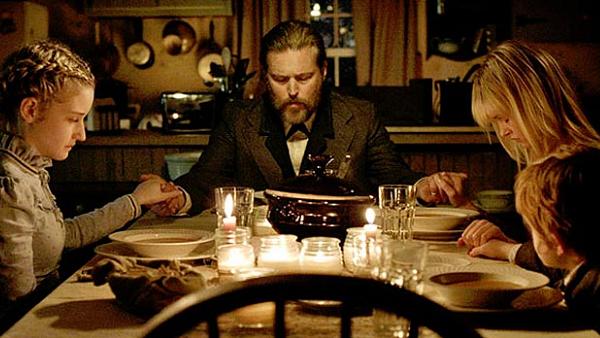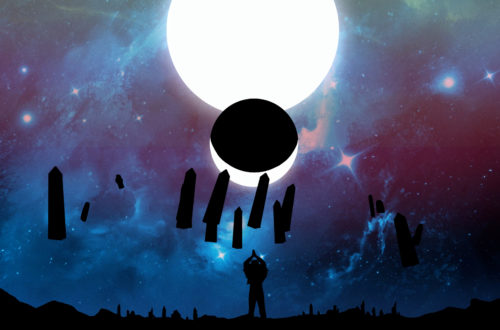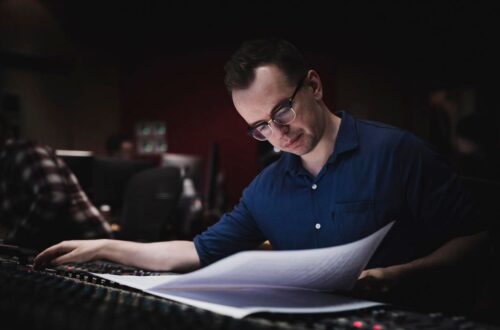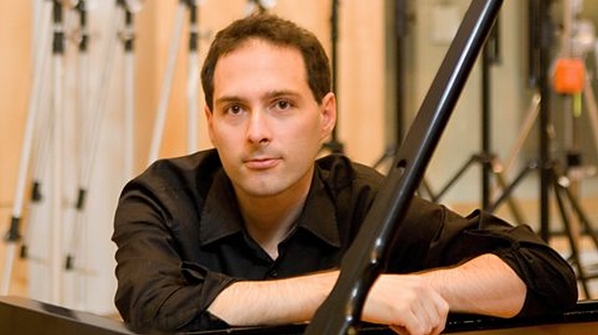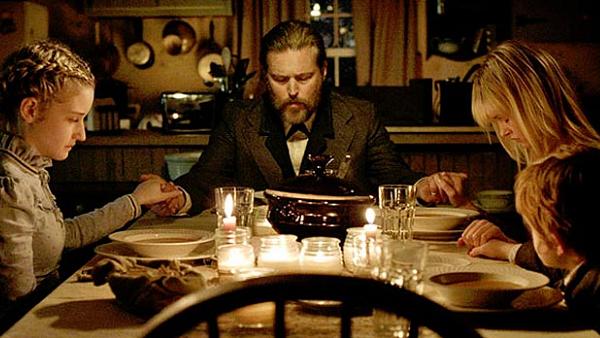
As you might be able to ascertain from my review of Jim Mickle’s We Are What We Are, I really, really dug the film – it’s a serious breath of fresh air in an October that’s bizarrely lacking in horror releases (in fairness, the Carrie remake opens next week, but I have a feeling that’s going to be scary for reasons other than its horror beats). Cannibal fare might be relatively niche even in horror, the most niche genre umbrella of them all, but every element that makes up the film’s whole plays in a way that’s universally pleasing; gorehounds don’t get to claim exclusive dibs on what Mickle has done here.
That’s because Mickle considers the film non-categorical by its very nature. I got the chance to speak with him about his film recently, and in his mind, We Are What We Are doesn’t fall within any single genre boundary; it’s horror, but it’s a lot of other things, too. Considering its own status as a remake, this is an incredibly personal movie – but you’ll have to read on to find out how for yourself.
(Thanks to Jim for taking the time to chat with me, and to Darren at Allied for setting the interview up!)
Andy Crump: I wanted to start off by asking about the process of how you got involved in the production; if I understand correctly, you hadn’t seen the original before attaching yourself to the remake?
Jim Mickle: Right, I hadn’t seen it but I had heard a ton about it, more than I had heard about any other movie, I felt like, because it came out at the exact same time as Stake Land and a lot of people were kind of comparing it to that. Any time we’d be at a festival or something, inevitably someone would be like, “Hey, have you seen the Mexican cannibal movie? It’s so good, you’ve gotta see it!” (laughs) And then IFC acquired both our movies, and they released We Are What We Are and I think they released Stake Land either the next weekend or the weekend after that, so I just kind of kept following it.
Tonally, it had some similarities – the character-driven, sort of gory thing – so I kept hearing about it to the point where I didn’t even see it when it came out. When it finally did come out, it was kind of like going to see something you’ve written about a million times, you know, it’s like, “I don’t need to see it, I already know!” And then Andrew Corkin and Rodrigo Bellott, two producers, I think they’d seen it at Cannes and spent about, I don’t know, a couple of years trying to acquire the rights, and they got the rights, and we were kind of working with them on another film indirectly, and they brought it to us and said, “Would you be interested in doing an American version of this?”
At the time, I’d gotten other remake scripts or stuff like that, and I was like, “This isn’t exactly what I want to do, this is bad as a horror fan, as a movie fan this is not what I’m interested in”, but something turned, and then we wound up making it! (laughs)
AC: So did you find the experience of not being of the movie freeing when making your own version of it?
JM: A little bit! One of things that made it a little bit easier was that it wasn’t this beloved world-wide thing that everyone can quote – you shouldn’t do those, I don’t know how people do those. It wasn’t Girl With the Dragon Tattoo or Let the Right One In. It had a following enough, I think, to make it interesting to people, because it was new and it was a fresh idea. Also Nick [Damici] and I both watched it, and when it ended, Nick was like, “Why remake that?” It’s a perfectly good movie, it’s great, it does what he [Jorge Michel Grau] is trying to do, he takes a really interesting concept and he explores what he wants to explore with it. But I think there was something, it kind of started with us saying, “Well, what would we do?”, and it evolved from there.
What also helped was that in talking to them, we were kind of like, “You know, we don’t want to do a remake remake, you can do whatever you want to do”…at one point we asked, “Can we just keep the name?” But there was a lot of stuff we liked about the original, so then I think it became a really interesting challenge to keep elements we liked but flip the rest of it and find sort of a new story in there.
AC: Yeah, it definitely feels like a cousin to the original. They’re very divorced from one another. You go in very different directions with the idea. The thing I walked away from the most with it is that it feels distinctly American, and I feel like a lot of American remakes of foreign horror – like The Grudge movies all travel back to Japan – they try to keep the movie rooted in the culture it comes from. This feels like a very American movie, was that something that was important to you when making it?
JM: It wasn’t important because we wanted it to be American, but we started off coming up with ideas like, “Well, the original is in a city, what if we set it in New Orleans?” And we were like, “That’s great, we’re gonna set it in New Orleans!” But I have no idea what it’s like to live in New Orleans. I visited, like, once, so literally that would be a fantasy to pretend that it was there. Then at some point, I’d grown up outside of Philadelphia but in a really rural town, so we thought it would be in Philadelphia, but we realized we don’t know what it’s like to live there, either.
So we kind of had this whole process where we had a lot of what-ifs that were really cool and then realized that we’d just be making it up, because we don’t know anything about those cities. What was kind of cool then is that we realized that Jorge was writing about something he knew deeply, you could tell – I don’t know, maybe he’s never grown up in a city – but you could tell that he knew a lot about what he was talking about in the picture, and he knew a lot about what he was depicting. It was kind of the opposite of experience of what my growing up was, and what Nick’s growing up was, and I think then at some point it became, “Let’s not try to find a cool way to do it, let’s just do a more personal thing, something that we know we can talk about”.
So upstate New York, we both know very well and had just lived through Hurricane Irene that came through there and beat it up. We knew a lot about that. And when I was in high school, my parents split up and my mom moved out, so I lived with my dad for the last couple of years. So I had the opposite experience, I got to see my dad trying to hold, you know, a family together, so all these little things that were kind of the opposite of Jorge’s experience, and we decided not to try to Americanize it or translate it. We just were gonna do an equally personal thing back.
AC: So was reversing the gender politics of the movie important? Because in the original film, it’s the father and then it’s the sons, but here it’s the mother and then it’s the daughters. Is that something that felt more personal to you?
JM: Yeah, I mean, because I have a sister and again, my mom moved out so it’s not like she died, it was amicable, but I was trying to find parallels to my own life. And I grew up with my sister and we were very, very, very, very close, and we grew up in the middle of nowhere, in the sticks in Douglassville Pennsylvania. I think turning it like that, I think what Jorge’s end was – the sons thing and the missing father – brought about an idea of, like, patriarchal responsibilities, which felt like they worked very well in Latin America, in Mexico, and it didn’t feel like it was going to work out all that well and it also didn’t seem like something we could speak to all that much, because I think if anything the world is becoming more feminized, so I don’t think it really makes sense to do that.
And In the back of my head, I was kind of obsessed with Mormon culture and religion, and that hopefully really pops through in this movie. That was one of the things that, to me, is the scariest s**t, I think that’s terrifying, this idea of old white men kind of dictating what women are allowed to do and what they’re not allowed to do. So once we did this “what if?”, we realized that we actually could explore all of this stuff, and then we didn’t have to do the patriarchal thing or what it’s like to be the man of the house, we could explore what women inherit and what chores come to them and what responsibilities fall on their shoulders, anywhere from kitchen duties all the way to, you know, having to prepare the body!
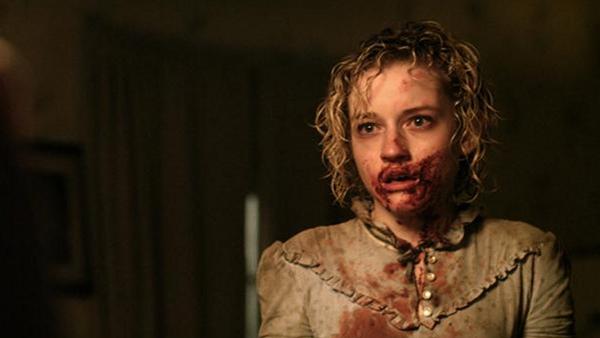
AC: Right, the family meal! Yeah, I was gonna say, this felt much more like a story that’s about the daughters than the father, but you’re talking about religion being that terrifying aspect, and I definitely agree. It’s interesting to me that that plays such a huge role in the Parkers’ story, because it’s something that played a big role in Stake Land, and so did the entire concept of the family unit. Those seem to be pretty important subjects for you.
JM: Yeah, it’s funny – you don’t know until you do it. I remember somebody, after Stake Land at a Q&A, Nick and I were on stage and someone asked, “What’s your fascination with family?” And Nick was like, “I’m not obsessed with family!” And she laid out this whole thing about Mulberry Street and Stake Land, and he was like, “Okay, wow!” And now for our next movie…(laughs)
AC: Even just looking at the poster screams “family”.
JM: I don’t know, I think there’s something Shakespearean about family that’s great, and I like the sort of heightened character melodrama that can fall into place there. I kind of subscribe to what Stephen King said: to write something scary, he has to think about what scares him, and I think that’s a big part, and trying to find the new monster, in a way, that’s always tough with horror movies because there’s only, like, four things that it can be, which is frustrating but also challenging, to find new things. For me, that’s the thing that I kind of get the most scared of. I grew up around Amish culture, which is gorgeous and I’m fascinated with it. My dad took me to a Quaker church when I was twelve years old, I remember that vividly. I lived just down the street from a church growing up, and my mom’s side of the family is very religious, so I was kind of always around it and always interested enough to question it when I was younger, the weird inconsistencies and stuff.
I remember my grandfather fell down the stairs and broke his hip walking out of the church one time, and I remember as a young teenager being like, “What does that say? Why did God throw him down the stairs after he walked out of a church?” And everyone was just kind of like, “What did you even ask that question for?” I remember thinking, “That’s weird, isn’t it weird to anybody else?” So yeah, I think there’s something there, especially with the Stake Land thing there’s also that Tea Party influence, obviously. I actually always wanted to make a Mormon horror film, and Jon Krakauer’s Under the Banner of Heaven book was pretty big for me.
It’s funny, I remember I kept telling Nick, “Let’s do this, let’s do this,” and we kind of played around with it for a couple of years and it didn’t quite work, and we sort of abandoned the idea altogether. And then, weirdly enough, we finished the script for this, and we were like, “We did it!” Funny to think that.
AC: Yeah, getting to the other end of it all. You mentioned Nick, obviously he’s worked with you on every movie you’ve made – can you talk a little bit about your working relationship with him and the writing process you have with him?
JM: Yeah, it’s evolved over time, but mostly I get too much credit as a writer. He’s kind to give me a writing script, because I think he leans on me a lot, but it’s really Nick that writes these scripts. We’ll meet up and talk about things, and sort of brainstorm, throw ideas at the wall; he knows me really well, and so I think he can kind of write toward my sensibilities and trust that I’ll understand certain things that he’s trying to do. But basically, we talk, we explore, and then I let him go and give him the space, and at some point, the beauty is that when Nick really loves something, he’ll attack it, and I think the final script for Stake Land – there had been a bunch of versions before, there were some short films – but the final version of it he wrote in about five days, and it wasn’t far from the final thing we shot. Same with this, I mean, this one was about three weeks for the first draft, from blank page to that. So I kind of let him go, and every day, every couple of hours, he’ll send me what he’s got, and I’ll read, and take notes, and kind of try to steer the whole thing to the end, and then once we get there, you know, I think the real process comes in the rewriting, and looking back at what we’ve written and tweaking, and restructuring things, and losing characters, and playing certain things up.
I think the beauty is, he kind of starts, and he doesn’t outline or do note cards or anything, I think he finds it as he goes. So part of what I try to do is help find the theme that’s buried in there, what he’s saying without knowing that he’s saying it, finding ways to sort of bubble that to the surface. So it’s a cool process, it’s fun, and this was really fun to do because it was the first time we were sort of asked to do it. Every time up until then, it’s just been us and hour day jobs in between, going home that night and having a couple of beers and talking about something, trying to sneak it in around work. This is the first time that I was able to take off work and say, “This is something we’re going to do, we’re going to take this month”, and we really went at it hard, intensely, for a couple of weeks like that.
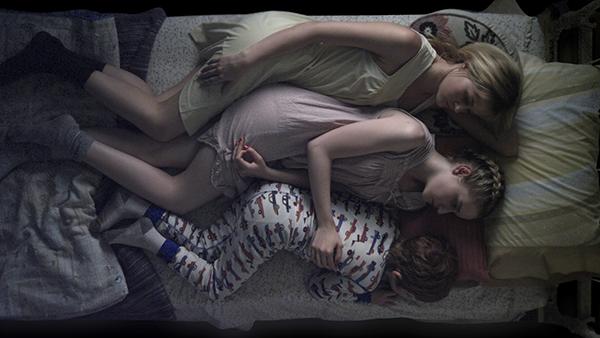
AC: You know, I kept expecting him to step and be the hero at the end. I re-watched Stake Land very recently, and I was waiting for that moment where he would say, “I’m gonna go get the cannibals!” But it was Michael Parks, and I actually liked that touch, where he has this personal connection to the Parkers. How did you get him involved with the movie?
JM: Nick kind of wrote that for himself, you know, that role, and that’s why I think it’s sweet and good because he was always imagining himself in it. I think he always writes scripts with a point of view of a character, and I think he always kind of imagines himself as that point of view as a way to get at the story – that’s why things have a certain emotional balance in there. So he really wanted that role, and I was always imagining it as somebody, like you said, who’d be the last…you couldn’t think that guy was going to bust his shirt off and some point and save the day. (laughs) That would have just ruined the entire movie. Not that Michael Parks is frail, but I think the way he did it, he kind of schlubs himself up, and he’s a small town guy, and my dad’s a small town doctor, and, you know, he’s the last guy I would expect to be the hero of the movie.
So that was a hard process, because our friendship almost ended very abruptly when I said, “I just don’t see it”, kind of for that reason, and the only reason I think that I’m alive, and that Nick hasn’t killed me, is that when he was like, “So, who the f**k do you think is gonna play it?”, I was like, “Someone like Michael Parks?” And Michael Parks is probably his favorite actor. Then he kind of hung up, and then we didn’t talk for about a week. It was really bad. And then I sent Michael Parks a letter saying, “I love you, I love your work” – we’d always talked about trying to cast him in other things that we were trying to get going, and obviously this is something that he can do really well, like Red State, these sort of horrible, horrible characters, but I thought he would be just as good in the opposite, someone who’s kind of a sweet, soulful, small town doctor. And he responded! He liked the character, and then he came, and it’s funny, he and Nick became best friends, but I think Nick kind of told him at some point, like, “Yeah, that’s my part, you got my part”. (laughs)
AC: A little bit of professional jealousy, huh?
JM: Yeah, exactly! At one point, Michael came to the set, and he was like, “Can I talk to you for a second? Nick said he wanted to play the part, but that you wanted someone old and on their last legs…” I was like, “I can’t believe he f**king told you that! That’s not it at all!” (laughs)
AC: Well, thankfully, it all worked out!
JM: Yeah, it all worked, and since then he kind of told me begrudgingly, “It was a good decision, it was a good decision”.
AC: Good thought, mollifying him by picking his favorite actor.
JM: Exactly. But he’ll still say, like, “Oh, Michael played my part”. He’ll still say stuff like that.
AC: So obviously in the next movie, Nick gets to just bust into a room with chainguns to save the day.
JM: We did another one, we just shot another one this summer, and it takes place in Texas in the 80’s. It’s based on a book, and there’s a character in it that’s like, the most lively, over-the-top sort of charismatic s**t-kicker, just the kind of guy you want to go out and have beers with, and he sort of is his own brand, and Nick always wanted to play that part but we cast Don Johnson instead. I was like, “You can’t top Don Johnson!” So I just have to keep finding people like that!
AC: Exactly, as long as you keep doing that, you’ll be fine. Was this the Joe Lansdale movie? Cold…oh my god, I can’t even remember.
JM: Cold in July!
AC: Cold in July. I wanted to ask about that too. When I think of Joe R. Lansdale, my mind immediately goes to Bubba Ho-Tep right off the bat…
JM: Yeah, me too!
AC: Is there anything you can talk about in regards to that?
JM: Yeah, sure! The thing I like about Joe is that he’s got the Bubba Ho-Tep side of him, and then he also has this really dark, would-make-Cormac-McCarthy-blush, you know, really toned, hard-boiled, thriller aspect to him. So ours is more towards that direction. We read it about five or six years ago and fell in love with it, right after Mulberry Street, and we optioned it then and sort of fought for the last five years – actually seven years – to get it done, but it doesn’t really fall under any genre. It’s definitely a thriller, but it’s not thriller enough to be a Mark Wahlberg piece of crap, it’s action but it’s not enough, so it kind of falls between all of these genres, very much the same way Bubba Ho-Tep did. So it was really difficult to get made because of that, but I think finally after We Are What We Are, I think people are like, “Okay, they don’t really make categorizable movies, but we’ll green light this anyways.”
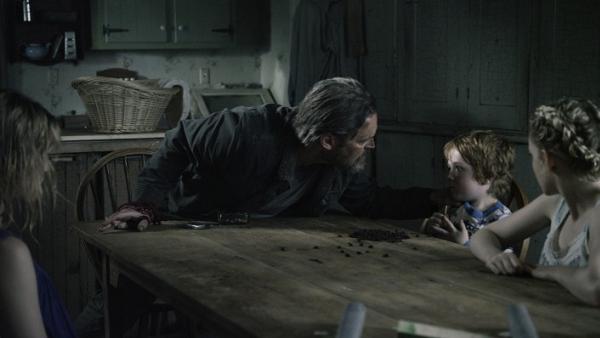
AC: But they work, so, why quibble about it?
JM: Yeah! So, it finally panned out, we shot that this August, and it’ll be very different from We Are What We Are.
AC: Sounds like it.
JM: It’s not horror, it’s more a Blood Simple sort of thriller, and Michael C. Hall is incredible. He just completely sinks into this character. It was really cool because he had just left Dexter, and I think it was sort of his therapy to go play this completely different character, so it was amazing to see the guy just step in to it. He wears like a mullet hair piece, it takes place in the 80’s, so he had the guys from Dexter make him a mullet, and he’s got a really bad mustache, and he’s just the goofiest dude in the world. It’s pretty incredible.
AC: I can’t wait just for the mullet.
JM: You had me at mullet!
AC: You had me at mullet! Last question – so, there haven’t been and there aren’t a whole lot of cannibal based movies. Do you feel like that’s something that’s almost too taboo, maybe not for an American audience but for horror audiences in general?
JM: I don’t think “too taboo” – that was the thing that kept me coming back to the original. Maybe it is taboo, maybe that’s why people don’t do it, but I kept trying to think of other examples, and the only examples are really campy or really exploitative, or Ravenous, which is my favorite…
AC: Great movie.
JM: That’s one of those uncategorizable movies, you know? That’s what makes it great. But when it came, it was like, “Yeah, nobody’s really done this!”, maybe because it is taboo. I think that’s what I liked, it was such a dark topic and it was so taboo that you could tell this completely different story about a family and just dangle that carrot in a way, and have that floating there and have it be enough, whereas Stake Land was a very careful balance – we gave you a little bit of character, and then we spiked it enough to sort of let you know to hang with it, and it was this whole kind of puzzle thing. After Mulberry Street, I think a lot of people were thrown off by the tone of that, so I think the fun thing about this was being able to play with a hint of that and suggest it, and just have something you could simply nod to a little bit and it was enough to keep things dark and intense.
So I don’t know if it is taboo. You know, we had a screening in France that went crazy, the people went apes**t for it. People stormed out, and then people loved it, and I think it was partly because it was family values being corrupted, it wasn’t just the cannibalism thing. So I don’t know. I’ll be curious to see how it does this weekend, how regular moviegoers will take it.
